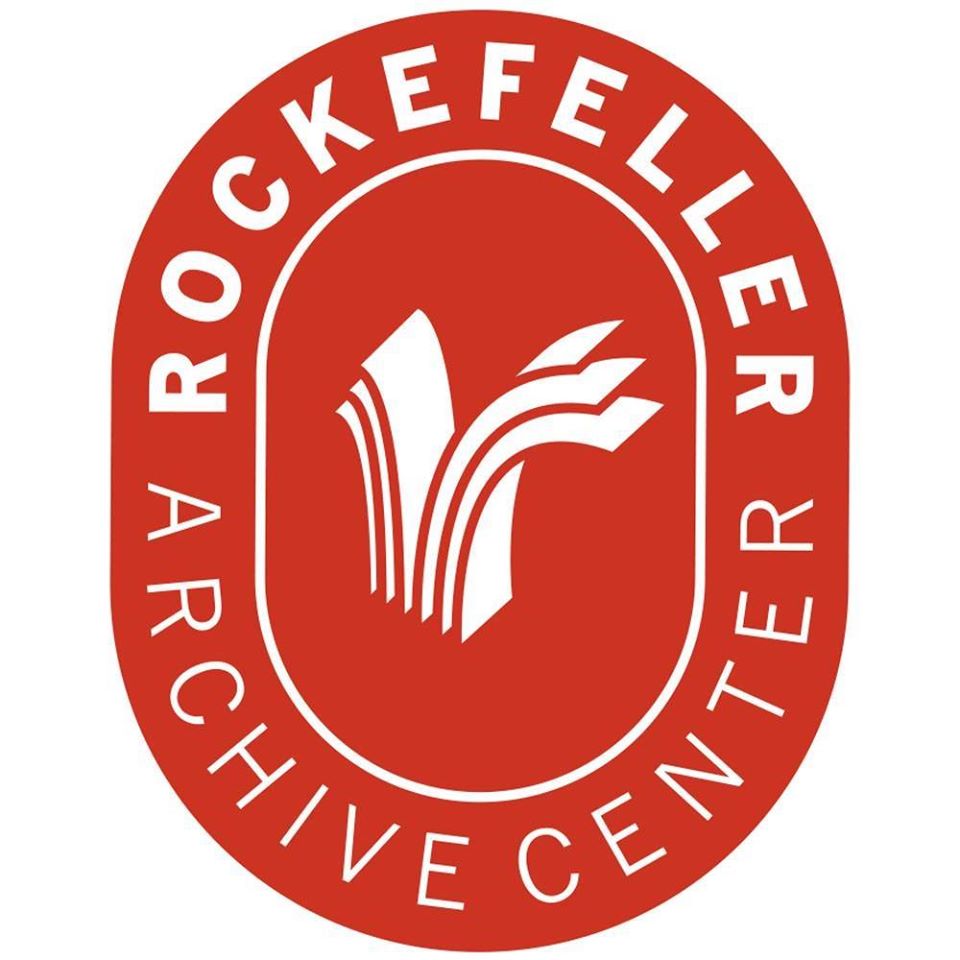Collection context
Summary
- Creator:
- Rockefeller, John D. (John Davison) (1839-1937), Rockefeller, Abby Aldrich (1874-1948), Rockefeller, David (1915-2017), Rockefeller, Nelson A. (Nelson Aldrich) (1908-1979), Rockefeller, John D., Jr. (John Davison) (1874-1960), Rockefeller, John D., III (John Davison) (1906-1978), Rockefeller, Laurance Spelman (1910-2004), Museum of Modern Art (New York, N.Y.), and Colonial Williamsburg (Williamsburg, Va.)
- Extent:
- 68.72 Cubic Feet
- Language:
- English .
Background
- Scope and Content:
The Cultural Interests series reflects the Rockefeller family's involvement and contributions in the areas of the arts, museums, parks, and historic restorations. The series contains correspondence between members of the Rockefeller family and the Family Office Staff on the one hand, and officials and members of the various institutions and organizations on the other. Most of the material concerns unsolicited appeals for donations. Some members of the family were also members of or were active in several of the organizations, and some of the correspondence reflects this activity.
The family members who figure most prominently in this series are John D. Rockefeller Jr., John D. Rockefeller 3rd, Nelson A. Rockefeller, Laurance S. Rockefeller, and David Rockefeller. John D. Rockefeller Sr., Abby Aldrich Rockefeller, Winthrop Rockefeller, Abby Rockefeller Mauzé, Blanchette Hooker Rockefeller, Mary French Rockefeller, Margaret (Peggy) McGrath Rockefeller, and Martha Baird Rockefeller also appear.
The Colonial Williamsburg section of the Cultural Interests series comprises 29 manuscript boxes of material covering the years 1926-1961. While this section does not cover all aspects of the restoration from the initiation of the idea in 1926 through John D. Rockefeller, Jr.'s death in 1960, most major facets of this massive project are included. The main focus of this material is on John D. Rockefeller, Jr.'s participation in the origin and development of the idea of restoring the Tidewater city to its authentic mid-eighteenth-century condition. There are folders for each of John D. Rockefeller, Jr.'s gifts, which totaled over $450 million by 1960. The financial history of the restoration can be traced through a series of Treasurer's reports, operating budgets, and annual reports, as well as memoranda between John D. Rockefeller, Jr., Kenneth Chorley, Carlisle Humelsine, Vernon Geddy, and John D. Rockefeller 3rd.
The quality and inclusiveness of the documentary material drops sharply after 1954, as a consequence of John D. Rockefeller, Jr.'s increasing age, the retirement of Kenneth Chorley, the modest financial success of the restoration, and the resignation of John D. Rockefeller 3rd from the Chairmanship. This last event provides an interesting counterpoint to the main theme of the Colonial Williamsburg files and one fully covered by the documents included here. John D. Rockefeller 3rd supported his father's efforts to complete the historical restoration, but he also hoped to use Williamsburg for broader educational and less antiquarian purposes. During the entire period of his tenure as Chairman (1939-1953), but especially during the years 1948-1952, he sought to convince his father and fellow trustees that Williamsburg could play a central role in the effort to revitalize American democracy and to remind the country of its political and economic heritage. John D. Rockefeller 3rd's resignation stemmed from John D. Rockefeller, Jr.'s growing reluctance to see any resources diverted from the central objective of restoring Williamsburg.
- Arrangement:
This series is arranged in twenty-one subseries:
Chautauqua Institute; Historical Monuments; Libraries; Memorials; Milbank Memorial Fund; Motion Pictures; Museums; Music; Organizations and Parks; Palisades Interstate Park; Plant, Flower, and Fruit Guild; Radio and Television; Restorations; Chinese Restorations; French Restorations; Old Ironsides; Colonial Williamsburg; Theatre; Miscellaneous; and Raymond B. Fosdick.
- Rules or conventions:
- Describing Archives: A Content Standard
Indexed Terms
- Subjects:
- Travel
Urban renewal
Urban policy
World War II
World War I
Family planning
Federal government -- United States
Education
Education -- United States
Governors -- Election -- New York (State) -- 1958
Health insurance
Folk art
Government policy
Public welfare
Religion
Housing rehabilitation
Public relations
Rockefeller family -- Art collections
State governments -- United States
Religious institutions
Restoration and conservation
Charities
Charities -- Investments
Philanthropy -- New York (N.Y.)
Child welfare
Civic improvement
Business enterprises, Foreign
Capital investments
Charitable contributions
Charitable uses, trusts, and foundations
Art, Modern
Art -- Collectors and collecting
Arts
Business
Economics
Economic policy
Economic development
Art
International education
International relations
International cooperation
International economic relations
Maternal health services
Medical care
International relations -- United States
Juvenile delinquency
Medical sciences
Medical education
Medical research
Performing arts
Philanthropy -- United States
Parks -- New York (State)
Political science
Political campaigns -- United States
Philanthropy
Public policy
Public health administration
Public health
Prohibition - Places:
- United States
New York (N.Y.)
New York (State)
Online content
Access
- RESTRICTIONS:
-
Open for research with select materials restricted as noted. Brittle or damaged items are available at the discretion of RAC. Material in the Rockefeller family collections that provides the names, correspondence, or activities of living members of the Rockefeller family, and/or documents the net wealth of any Rockefeller family members, is restricted. Researchers interested in accessing digital media (floppy disks, CDs, DVDs, etc.) or audiovisual material (audio cassettes, VHS, etc.) in this collection must use an access surrogate. The original items may not be accessed because of preservation concerns. To request an access surrogate be made, or if you are unsure if there is an access surrogate, please contact an archivist.
- LOCATION OF THIS COLLECTION:
- CONTACT:
-

